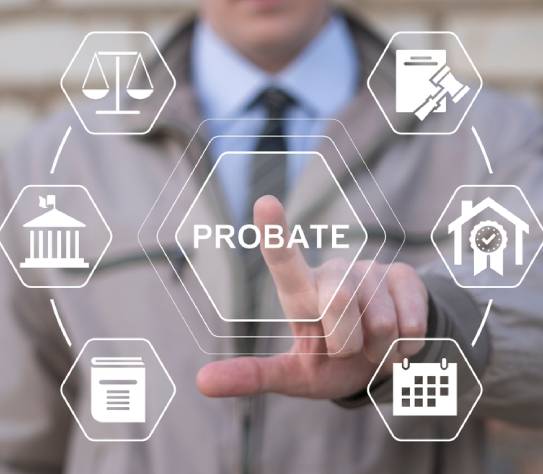What Is a Personal Representative’s Role in Florida Probate?
 Probate is the legal process that ensures a deceased person’s assets are distributed correctly in Florida law. When someone passes away with a will, the person named to handle the estate is referred to as the personal representative. This role carries legal authority and a range of responsibilities that impact both the estate and its beneficiaries.
Probate is the legal process that ensures a deceased person’s assets are distributed correctly in Florida law. When someone passes away with a will, the person named to handle the estate is referred to as the personal representative. This role carries legal authority and a range of responsibilities that impact both the estate and its beneficiaries.
At Pyle, Dellinger & Naylor, our probate attorneys help families across Daytona Beach, Palm Coast, and surrounding areas through every stage of this process. If you’ve been appointed as a personal representative or are preparing your estate plan, understanding the legal duties involved is essential.
Who Can Serve as a Personal Representative in Florida?
Under Florida law, a personal representative must meet specific qualifications. They must be a Florida resident or a close relative of the deceased if they reside out of state. Additionally, they must be at least 18 years old, mentally competent, and have no felony convictions.
The court formally appoints the personal representative, even if the person is named in the will. If there is no will, the court selects someone based on legal priority, usually a surviving spouse or close family member.
If you have questions about your eligibility or obligations, it’s wise to speak with a personal representative lawyer who understands the requirements in your county.
Core Responsibilities of a Personal Representative
Once appointed, a personal representative is responsible for administering the estate in accordance with Florida’s probate code. This includes a range of legal, financial, and administrative tasks that must be completed accurately and in a timely manner.
Here are some of the key duties involved:
- Identify and gather all assets owned by the decedent, including bank accounts, property, and personal items.
- Notify creditors and pay valid debts, including taxes and administrative expenses.
- Distribute remaining assets to beneficiaries as instructed in the will or, if no will exists, according to Florida intestacy laws.
Even small mistakes in handling these tasks can delay the probate process or result in legal consequences. That’s why many personal representatives rely on experienced legal guidance to avoid missteps.
How a Probate Attorney Supports the Process
Handling an estate can be overwhelming, especially during a time of grief and loss. Our probate attorneys work closely with personal representatives to ensure they meet their obligations with confidence. From filing legal documents with the probate court to communicating with heirs and creditors, we provide step-by-step support to ease the burden and keep the process on track.
Our team serves clients across Volusia and Flagler counties, handling estates that range from straightforward to complex. We also assist with disputes when heirs disagree over how the estate should be managed or distributed.
To learn more about how we can support your role as a personal representative, visit our Practice Areas page.
What Happens If There Is No Will?
If a person dies without a valid will, Florida law determines who may serve as the personal representative and how the estate is distributed. This is called intestate succession. In such cases, the court will appoint a person to manage the estate, and the assets will be distributed to close relatives according to a legal priority list.
This process can become complicated if multiple parties seek control or if there are disagreements over who should inherit the estate. A probate lawyer in Daytona Beach can help families work through these situations with clarity and professionalism.
To get to know the attorneys who handle these matters, visit our Attorneys page.
Common Questions About Personal Representative Duties
If you’re new to probate, it’s normal to feel unsure about your responsibilities. Below are answers to common concerns we hear from clients:
- How long does probate take? Most cases in Florida take six to twelve months, but complex estates can take longer.
- Can a personal representative be compensated? Yes, Florida law allows for reasonable compensation for the work performed, either based on the estate’s value or as specified in the will.
- What if someone objects to my appointment? The court will review any formal objections and may hold a hearing to resolve disputes.
If any of these issues apply to your situation, our attorneys can guide you through them.
Make Probate Easier With Legal Support You Can Trust
Managing an estate is a significant legal responsibility. Our firm works with personal representatives across Daytona Beach, Ormond Beach, and surrounding communities to ensure the probate process is handled correctly from start to finish. With over 25 years of service to Volusia and Flagler counties, Pyle, Dellinger & Naylor, PLLC is committed to helping families through life’s critical legal moments. Contact us today to receive the guidance you need.





